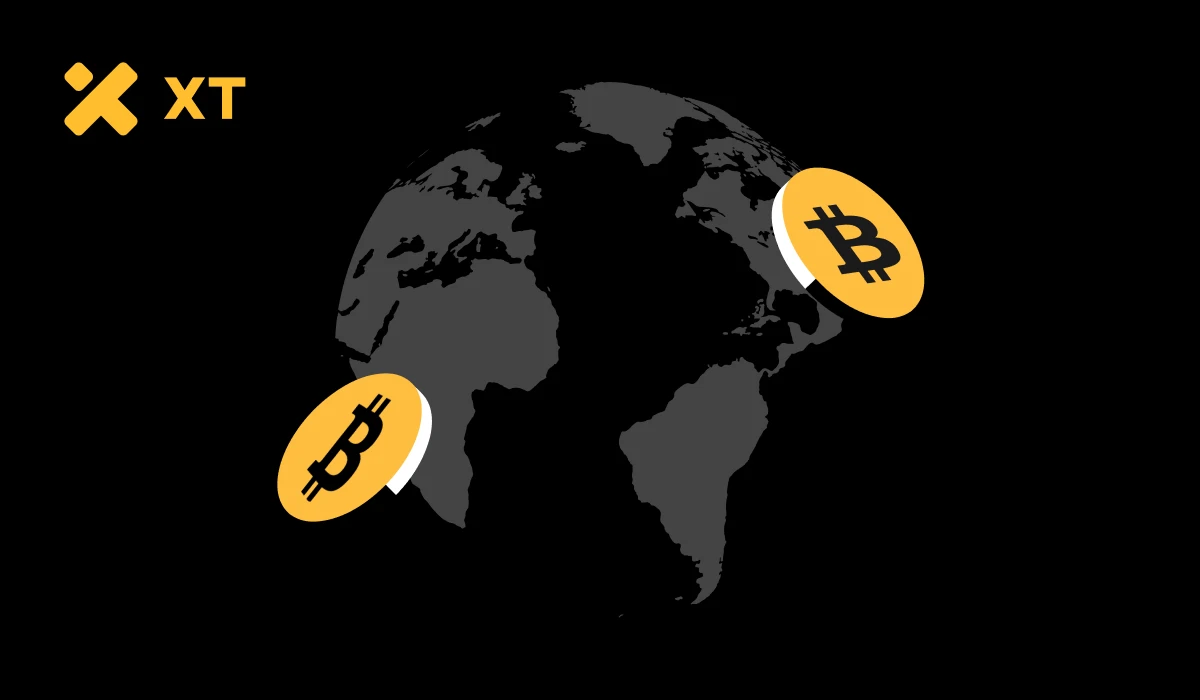Cryptocurrencies, represented by Bitcoin, are quietly changing the global financial landscape, providing a new form of decentralized, secure, and reliable currency. However, this transformation has also sparked intense discussions among governments and regulatory bodies worldwide. Some countries view cryptocurrencies as key to future financial development, actively embracing and promoting their innovation and application; while others remain cautious of their risks, even imposing outright bans. This article will analyze the top ten cryptocurrency-friendly countries globally, exploring how they support the rapid development of this emerging field, while also detailing which regions have imposed bans on Bitcoin. Additionally, it will delve into the cryptocurrency policies and positions of major economies such as the United States, the United Kingdom, Canada, China, and Japan.

Table of Contents
Cryptocurrency-Friendly Countries
Regions Where Cryptocurrency is Illegal
Cryptocurrency Policies of Major Countries
Cryptocurrency-Friendly Countries
Canada
With proactive regulatory policies, Canada has successfully positioned itself among the leading countries in global blockchain and cryptocurrency development. The country classifies cryptocurrencies as commodities and imposes capital gains tax, providing clear tax guidance for investors. Additionally, Canada categorizes cryptocurrency exchanges as money services businesses (MSBs), requiring strict compliance with anti-money laundering (AML) and know your customer (KYC) regulations. This balanced regulatory approach between innovation and security has not only fostered the thriving development of cryptocurrency exchanges and blockchain startups but has also made the industry ecosystem more robust. Furthermore, Canada's cold climate and low energy costs create favorable conditions for Bitcoin mining, further solidifying its status as a cryptocurrency-friendly country.

Image Source: The Logic
Germany
Germany stands out in Europe for its cryptocurrency policies, known for its forward-thinking and pragmatic approach. Bitcoin is defined as private money, legalizing its status as a medium of exchange, which means that holding Bitcoin for over a year is tax-free, making it highly attractive for long-term investors. For short-term trading, tax is only required when individual gains exceed 600 euros. Meanwhile, Germany's regulatory framework is led by the Federal Financial Supervisory Authority (BaFin), ensuring market transparency and effectively combating fraud. By achieving an ideal balance between strict regulation and investor-friendly policies, Germany has successfully established itself as a core hub for cryptocurrency innovation and institutional adoption, attracting significant capital and businesses.

Image Source: Unchained Crypto
Singapore
Singapore has successfully positioned itself as one of the most cryptocurrency-friendly countries globally, thanks to its forward-looking regulatory policies. The Payment Services Act provides a clear regulatory framework for digital payment tokens, ensuring transaction security and compliance for users and businesses. Additionally, Singapore's tax policies enhance its attractiveness, as long-term holders of cryptocurrencies are exempt from capital gains tax. However, businesses engaged in cryptocurrency trading must report and pay income tax on relevant profits. The Singapore government actively promotes the development of blockchain technology, fostering a thriving ecosystem that includes well-known exchanges like KuCoin and Phemex. With continuous support for innovation and a comprehensive legal environment, Singapore has become an ideal destination for global investors and blockchain entrepreneurs.

Image Source: The Cryptonomist
Switzerland
Switzerland's "Crypto Valley" located in Zug is a significant hub for global blockchain innovation and cryptocurrency development. The country's tax policies offer regional flexibility, with some areas implementing tax exemptions for long-term cryptocurrency holdings, attracting numerous investors and businesses. Meanwhile, the Swiss Financial Market Supervisory Authority (FINMA) provides reliable legal protection for the industry with its clear regulatory rules and highly transparent compliance mechanisms. This favorable policy environment, combined with the vitality of startups, institutional support, and active participation from investors, places Switzerland at the forefront of integrating blockchain technology and cryptocurrencies into the mainstream financial system.

Image Source: IFLR
Portugal
Portugal has become an ideal destination for cryptocurrency entrepreneurs and investors due to its friendly tax policies. The country exempts personal transactions of Bitcoin from value-added tax and capital gains tax, making it highly attractive for long-term investors. At the same time, the Portuguese government strongly supports the development of blockchain technology, providing a solid foundation for the growth of the digital asset industry through clear regulatory frameworks. Particularly in the capital city of Lisbon, the vibrant entrepreneurial environment and policy support have attracted numerous blockchain startups and cryptocurrency exchanges, gradually developing into an important center in this field. This not only enhances the local industry's influence but also further solidifies Portugal's leading position in global cryptocurrency application and technological innovation.

Image Source: Blockchain News
Malta
Malta has become a popular destination for global blockchain and cryptocurrency companies, earning the nickname "Blockchain Island." The introduction of the Virtual Financial Assets Act (VFA) provides a clear and comprehensive legal framework for the industry, ensuring that businesses can operate in a compliant and transparent environment. At the same time, Malta demonstrates strong support for the cryptocurrency industry through a series of favorable tax policies, attracting numerous startups and international investors. Companies in Malta enjoy financial incentives such as tax reductions and can leverage these policies to promote capital reinvestment and business expansion. Additionally, Malta has signed over 70 international agreements to avoid double taxation, providing an ideal landing spot for cryptocurrency investors and entrepreneurs seeking a stable and innovative regulatory environment, further solidifying its leading position in the global cryptocurrency space.

Image Source: ComplyAdvantage
Estonia
Estonia has been at the forefront of digital innovation, promoting the widespread application of blockchain and cryptocurrencies through its advanced e-governance system. The introduction of the e-Residency program provides global entrepreneurs with convenience, allowing them to register companies remotely without being physically present, thus creating a truly borderless digital economy. Meanwhile, Estonia's tax policies are very friendly towards cryptocurrencies, offering tax exemptions for certain digital activities and providing clear legal protections for investors and businesses. Additionally, the government has further solidified Estonia's international reputation for security and transparency through strict anti-money laundering (AML) and know your customer (KYC) policies, making it a popular choice for cryptocurrency companies.

Image Source: Law&Trust International
Gibraltar
Gibraltar actively embraces blockchain and cryptocurrency technologies, attracting a large number of digital asset-related companies with its secure and stable environment and strong regulation. The sector is overseen by the Gibraltar Financial Services Commission (GFSC), which maintains very high standards for compliance and investor protection. At the same time, Gibraltar offers highly attractive tax policies, exempting Bitcoin transactions from capital gains tax and implementing low corporate tax rates. This unique combination of strict regulation and tax incentives makes Gibraltar an ideal location for many startups and established companies, meeting their dual demands for stability and transparency.

Image Source: CryptoSlate
Luxembourg
Luxembourg is renowned for its exceptional financial stability, a strength that is also reflected in the blockchain and cryptocurrency sector. The country provides investors and businesses with a clear and secure regulatory environment, ensuring they can operate smoothly under legal protection. In Luxembourg, individuals enjoy capital gains tax exemptions on Bitcoin transactions, while blockchain companies benefit from friendly tax policies that support innovation and development. Additionally, Luxembourg's strategic location in the heart of Europe and its advanced financial infrastructure attract many companies looking to expand their cryptocurrency operations, making it an ideal base for international development in this field.

Image Source: Freeman Law
Slovenia
Slovenia has seamlessly integrated Bitcoin into daily life, with over 1,000 locations nationwide supporting cryptocurrency payments. Coupled with flexible financial regulatory policies that provide strong support for blockchain innovation, this has attracted a surge of local and international startups. For individual investors, occasional cryptocurrency transactions enjoy tax exemptions, making Slovenia an ideal choice for those looking to participate in cryptocurrency trading without cumbersome regulations. With this forward-looking development strategy, Slovenia has successfully created a vibrant ecosystem that supports the development of blockchain technology.

Image Source: quverse.io
Cryptocurrency Illegal Regions
Despite the global popularity of Bitcoin, some countries have adopted restrictive or even outright bans on its use due to concerns over price volatility, decentralized management, and potential misuse.
- China
China has completely banned Bitcoin mining and trading, citing concerns over financial risks and environmental impacts. Meanwhile, the Chinese government is actively promoting the development of its central bank digital currency (CBDC) as a state-led alternative aimed at replacing decentralized cryptocurrency systems.
- Saudi Arabia
Saudi Arabia has imposed strict restrictions on the use of Bitcoin, prohibiting financial institutions from participating in related transactions. Although individuals can hold Bitcoin, its adoption is significantly limited due to the lack of institutional support.
- Pakistan
Pakistan has fully banned cryptocurrency trading and mining under strict anti-money laundering (AML) policies, citing the need to prevent illegal fund flows. However, an underground cryptocurrency market remains active, exposing many challenges faced in regulatory enforcement.
- Bolivia
Bolivia has banned cryptocurrency trading since 2014, primarily to protect consumers from fraud and market volatility. The government has specifically pointed out that the risks posed by unregulated digital assets cannot be ignored.
- Tunisia
Tunisia has banned Bitcoin trading to maintain control over its monetary system. However, the lack of clarity in regulatory policies has hindered the promotion and acceptance of cryptocurrencies locally.
These bans reflect governments' concerns over economic stability and potential misuse, while also revealing significant differences in attitudes between countries regarding the acceptance of innovation and resistance to decentralization.
Cryptocurrency Policies of Major Countries
United States
The United States employs a multi-layered and multi-dimensional approach to cryptocurrency regulation, with different states and federal levels focusing on various aspects. The Internal Revenue Service (IRS) classifies Bitcoin as property, thus requiring capital gains tax, and individuals and businesses must accurately report gains from Bitcoin transactions or sales. Federal agencies such as the Securities and Exchange Commission (SEC) oversee initial coin offerings (ICOs), while the Commodity Futures Trading Commission (CFTC) regulates Bitcoin futures trading. Additionally, local governments like Wyoming have introduced cryptocurrency-friendly policies to create a favorable development environment for blockchain companies. Despite the overall complexity of the regulatory system, the U.S. remains a significant hub for global cryptocurrency innovation and investment.
United Kingdom
The United Kingdom provides a clear and pragmatic framework for cryptocurrency regulation. Under the Financial Services and Markets Act of 2023, Bitcoin is classified as an asset, and capital gains tax is applicable on trading profits. Companies engaged in cryptocurrency-related businesses must fulfill tax and reporting obligations. The Financial Conduct Authority (FCA) oversees cryptocurrency exchanges to ensure consumer rights and enhance industry transparency. At the same time, the UK is also concerned about the environmental issues associated with Bitcoin mining and actively promotes sustainable development practices. With robust regulation and reasonable tax policies, the UK offers a safe and friendly development environment for cryptocurrency investors and businesses.
Canada
Canada adopts a relatively advanced regulatory approach in the cryptocurrency sector, treating Bitcoin as a commodity. Bitcoin-related transactions are subject to capital gains tax, and the Canada Revenue Agency (CRA) provides detailed guidance to help investors simplify their tax reporting processes. Cryptocurrency exchanges operating in Canada are classified as money services businesses (MSBs) and must register with the Financial Transactions and Reports Analysis Centre (FINTRAC), strictly adhering to anti-money laundering (AML) and know your customer (KYC) regulations. This proactive regulatory approach strikes a good balance between promoting innovation and ensuring safety, creating a thriving ecosystem for cryptocurrency exchanges and blockchain startups. Additionally, Canada's cold climate and low energy costs make it an ideal destination for Bitcoin mining.
China
China has implemented very strict regulatory policies regarding cryptocurrencies, including a complete ban on Bitcoin mining, trading, and initial coin offerings (ICOs). Officials state that this move is primarily due to concerns over financial stability, speculative risks, and the potential for decentralized digital currencies to be used for illegal activities. At the same time, China is focusing on developing its own central bank digital currency (CBDC) — the digital yuan — to strengthen monetary control and provide the market with a state-supported alternative. Despite the numerous restrictions on cryptocurrencies, China continues to maintain significant influence in the global blockchain space through technological innovation and policy-driven research efforts.
Japan
Japan has been at the forefront of cryptocurrency regulation, being one of the first countries to legalize Bitcoin and incorporate it into a regulatory framework through the Payment Services Act (PSA). Under this law, cryptocurrency exchanges must register with the Financial Services Agency (FSA) and strictly comply with regulatory requirements to ensure consumer rights and maintain market stability. Despite stringent regulatory demands, the acceptance of Bitcoin remains high in Japan, with many merchants supporting Bitcoin payments, showcasing Japan's commitment to integrating cryptocurrencies into its financial system and its long-term vision.
Conclusion
Globally, countries exhibit a wide range of attitudes towards cryptocurrencies, resulting in distinctly different regulatory environments. Cryptocurrency-friendly nations like Malta, Germany, and Singapore have successfully created a thriving ecosystem conducive to Bitcoin and blockchain innovation through comprehensive regulations and supportive policies. In contrast, regions including China and Saudi Arabia maintain a cautious stance towards Bitcoin, even imposing strict restrictions.
For investors and businesses, it is crucial to fully understand these stark regulatory differences. With secure and compliant trading platforms like XT.com, users can trade confidently in the rapidly changing cryptocurrency market.
As Bitcoin continues to reshape the global financial landscape, countries that actively embrace its potential are likely to take the lead in the next wave of technological and economic transformation. Whether experienced investors or newcomers, staying updated on regional policy dynamics is essential to truly unlock the potential of cryptocurrency trading platforms and digital assets.
About XT.COM
Founded in 2018, XT.COM currently has over 7.8 million registered users, with more than 1 million monthly active users and over 40 million user traffic within its ecosystem. We are a comprehensive trading platform supporting over 800 quality cryptocurrencies and more than 1,000 trading pairs. XT.COM cryptocurrency trading platform supports a rich variety of trading options, including spot trading, margin trading, and futures trading. XT.COM also features a secure and reliable NFT trading platform. We are committed to providing users with the safest, most efficient, and most professional digital asset investment services.
免责声明:本文章仅代表作者个人观点,不代表本平台的立场和观点。本文章仅供信息分享,不构成对任何人的任何投资建议。用户与作者之间的任何争议,与本平台无关。如网页中刊载的文章或图片涉及侵权,请提供相关的权利证明和身份证明发送邮件到support@aicoin.com,本平台相关工作人员将会进行核查。



